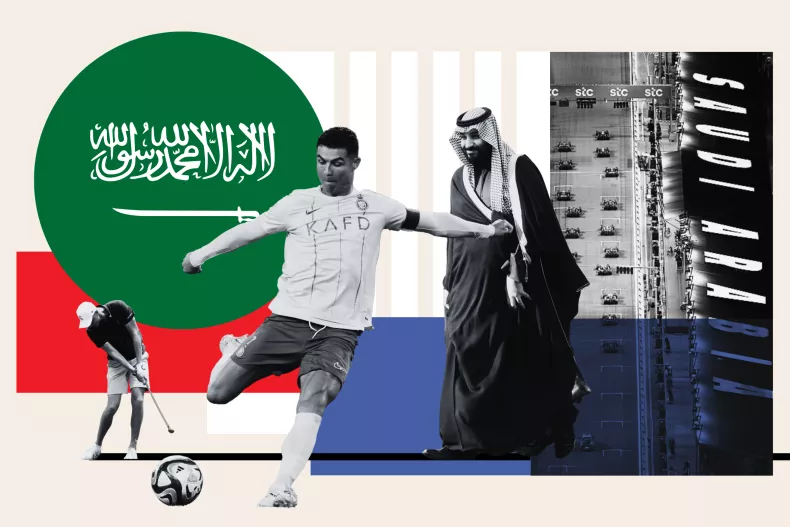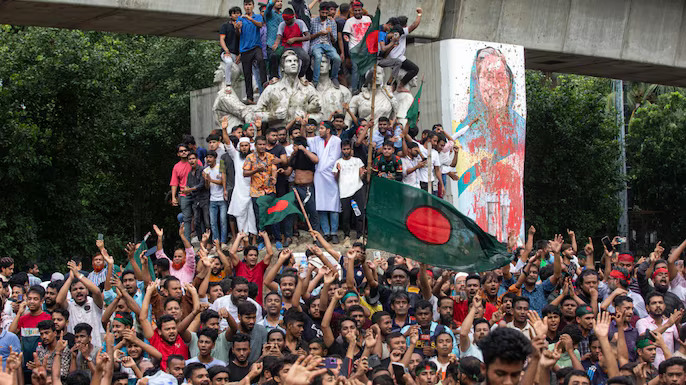
Saudi Arabia’s ambitious endeavor to establish itself as a global powerhouse in sports has garnered significant attention, marking a pivotal element of its Vision 2030 initiative led by Crown Prince Mohammed bin Salman. This strategic move not only aims to elevate the kingdom’s international profile but also plays a crucial role in its broader social and economic transformation.

This concerted effort has effectively reshaped global perceptions of Saudi Arabia, particularly in countries like the United States, where longstanding concerns regarding human rights have been somewhat overshadowed by Riyadh’s substantial investments in attracting international sports events, talents, and fans.
Simon Chadwick, a specialist in geopolitics, economics, and sports at SKEMA Business School, acknowledges the term “sportswashing” that critics might apply to such efforts. However, he underscores that these initiatives also enhance Saudi Arabia’s image, reputation, and legitimacy on a global scale—an aspect crucial in international relations.
Recent polling conducted by Redfield & Wilton Strategies for Newsweek revealed that a significant portion of U.S. voters were unfamiliar with the term “sportswashing,” and less than half expressed concern after its definition was provided. Meanwhile, there was a split opinion on the level of investment from Saudi Arabia’s $900-billion-dollar Public Investment Fund (PIF) into sports, with a notable portion of sports enthusiasts supporting the idea of PIF purchasing their favorite teams.

The kingdom’s endeavors have included significant milestones such as securing top-tier athletes like Cristiano Ronaldo for Al Nassr FC, acquiring English Premier League club Newcastle United, and hosting major events like the FIFA Club World Cup and Formula One’s Saudi Arabian Grand Prix. Moreover, Saudi Arabia is slated to host upcoming prestigious events such as the Women’s Tennis Association finals, the AFC Asian Cup in 2027, and the FIFA World Cup in 2034—highlighting its growing stature in global sports.
Vision 2030, unveiled in 2016, serves as the blueprint for Saudi Arabia’s comprehensive reforms aimed at diversifying its economy away from oil dependency and fostering social progress. Fahad Nazer, spokesperson for the Saudi Embassy to the U.S., emphasizes that investing in sports aligns with Vision 2030’s goals of economic diversification, job creation, and enhancing the quality of life for Saudis and expatriates alike.

Aseel Alghamdi, an assistant professor at Prince Mohammed bin Salman College of Business and Entrepreneurship, underscores that sports are integral to achieving Vision 2030’s objectives of boosting tourism and cultural sectors while steering away from traditional oil-based revenues.
Critics have labeled these efforts as sportswashing, a term also historically applied to other countries like Azerbaijan, China, and Qatar. However, Chadwick argues against oversimplifying Saudi Arabia’s sports initiatives, emphasizing the nuanced nature of its broader socio-economic agenda.
While challenges and criticisms persist, including allegations of human rights violations and international scrutiny following incidents like the 2018 killing of Saudi journalist Jamal Khashoggi, Saudi Arabia remains steadfast in its pursuit of global sports leadership. The kingdom’s approach not only aims to bolster its international standing but also resonates deeply within its society, fostering a sense of national pride and confidence in its leadership’s vision for the future.
In conclusion, Saudi Arabia’s investment in sports represents a pivotal component of its transformational Vision 2030 agenda, aligning economic diversification with broader societal aspirations while navigating complex international perceptions and criticisms.







